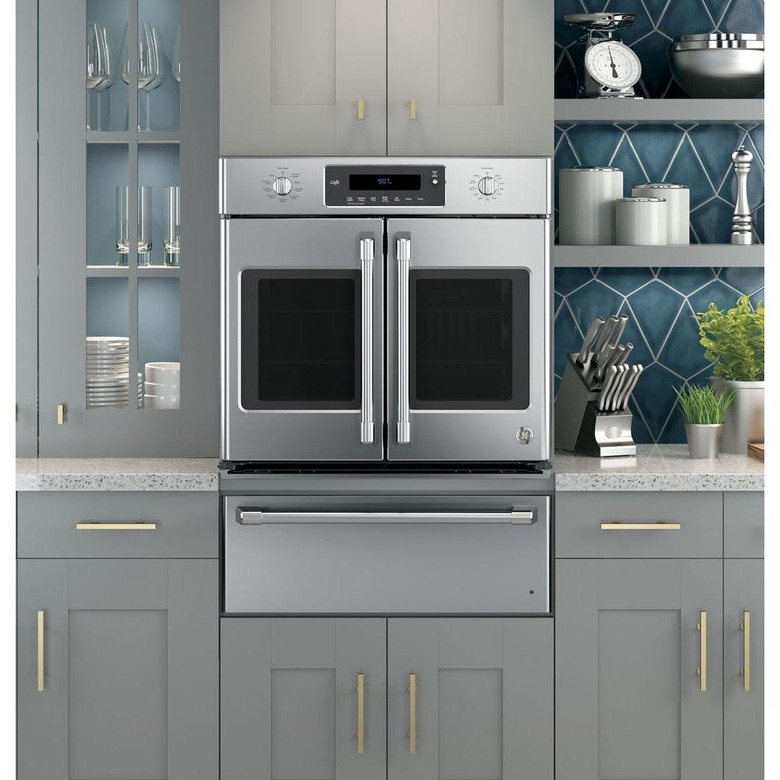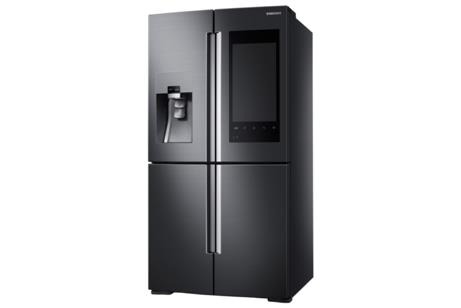What's Cooking In The Smart Kitchen?
We may receive a commission on purchases made from links.
The kitchen is the heart of the home. It's where we feed our family and friends, and where many of us spend the majority of our time. Clearly, there's a lot of potential here for new and amazing innovations. With all the recent excitement around smart home technology, what we food-lovers really want to know is: How can home automation make our favorite room in the house better?
The kitchen has been the slowest room in the house to develop any serious connected cachet. Why is this? Maybe because the premise of the smart home, bringing technology to everyday mundane tasks to make them easier, is already met in our kitchens. From bread machines to refrigerators, our kitchen is arguably the most high-tech room in the home. Simply connecting a kitchen device to the Internet doesn't immediately improve its usefulness. A fridge that tweets wouldn't work for me, but a fridge that can tell me what's in it and what I can make from those ingredients? That's something worth upgrading for.
Essentially, you want to look for devices that provide a significant benefit that doesn't already exist in your kitchen. Here are some of the smart kitchen products currently on the market, as well as a peek into the future at a few exciting devices that could make their way into our kitchens over the next few years.
Extra Control
The first wave of smart kitchen appliances that hit the market was primarily focused on giving you remote control of your appliances. For example, you can buy a Wi-Fi-enabled oven that you can preheat from your phone while you're on your way home from work, saving a good 20 minutes of your meal prepping time. You can also pick up a Wi-Fi-controlled crockpot or coffee maker. Belkin's Mr. Coffee WeMo model lets you program your coffee-making schedule through its smartphone app, which is ideal if you have a variable workweek. You can even eliminate the hassle of scheduling entirely and pair your coffee maker with a WeMo Motion Switch so that it starts brewing the second you hop out of bed.
Added Convenience
A step up from the simple remote control feature is integration. Take GE Appliance's Chef Connect technology, built into some of its Profile and Cafe lines. You can use the oven's Wi-Fi capability to set up If This Then That recipes that work with other elements of your smart home. For example, you can have the oven shut off automatically when you leave the house, or have your Philips Hue light bulbs flash when your dinner is done.
Additionally, the Bluetooth technology built into these appliances lets them communicate with each other to sync the clocks on the range and microwave, turn on the lights beneath the over-the-range microwave when you turn on a burner, and start the microwave's vent fan when the stovetop is also on.
Risk Reduction
The kitchen has ample potential for disaster. From food poisoning to fires, there's a lot that can go wrong. Remote control technology is a lifesaver in that respect. Checking in on your oven from your smartphone could save you a trip home if you think you forgot to shut it off. Smart smoke alarms, such as the Nest Protect, can help cut down on false alarms when you burn the toast, but also alert you via smartphone if it senses a true emergency. The Nest Protect can even tell you what room the danger is in, and if it's carbon monoxide or fire that's the problem. You can then use your app to turn off all your connected appliances and shut down your heating system if you have a Wi-Fi-controlled thermostat, potentially stopping the spread of the danger.
Smart technology can also increase food safety. The trusty meat thermometer has received a Bluetooth upgrade in the form of the iGrill. Place its Bluetooth-connected probe in your food, either on the grill, in the oven or in a pan and be alerted via smartphone when the food has reached the perfect temperature. There's no need to hover over your meat while it's cooking or worry that it's not done enough before you bring it to the table.
Improved Expertise
Many serious foodies are interested in how the smart kitchen can teach us new tricks and turn us into better cooks. Whether you are a newbie or an old hat, there are a lot of smart devices that can help improve your skills. The Pantelligent is a Bluetooth-enabled frying pan that guides you through cooking your dishes, telling you to lower or raise the temp at the perfect time for optimum outcomes. There's also Pure Imagination's Perfect Bake system, complete with a scale, mixing bowls and a smartphone app that connect to walk you step-by-step through the baking process.
For the more adventurous, the PicoBrew Zymatic is to the would-be homebrewer what the bread machine was to the would-be home baker. The machine connects to the Internet to download recipes and pre-programs itself to the recipe you select, taking a lot of the guesswork (though not all of the grunt work) out of brewing beer.
Have you read about the sous vide method, but aren't prepared to spend a few thousand dollars on a piece of equipment reserved for the kitchens of Michelin-starred restaurants? The Anova Culinary Precision Cooker is the smart gadget you've been looking for. This stick-like device works with your smartphone, a plastic bag, and a pot of water to bring you perfectly cooked meats, vegetables, and eggs.
The Future of the Smart Kitchen
This past January, the annual Consumer Electronics Show (CES) provided us with a sneak peek into what's coming to the smart kitchen. Whirlpool showed off its new Smart Kitchen Suite with the CareSync system, due at the end of 2016. The system includes the Smart Front Control Range, Smart Dishwasher and Smart French Door Refrigerator. All the appliances integrate with Whirlpool's smartphone app, as well as with other smart home devices. For example, the Smart Front Control Range will send you an alert if it is still on when your Nest Thermostat senses the home is empty. The Smart Dishwasher can even order its own detergent when it senses you're running low.
Samsung showed off its new smart fridge at CES, too, with first-of-its-kind interior cameras and a huge tablet screen. The Family Hub's cameras let you check its contents via your smartphone, ideal when you're out shopping and can't remember how much milk you have left. Samsung also promises the fridge will soon be able to tell you when you need to buy certain foods and even let you order groceries right from its screen.
Speaking of cameras, have you ever wanted to watch your lasagna as it browns, but not keep jumping up from the couch every five minutes to do so? The June Intelligent Oven hopes to be the answer to your prayers. Not only will it let you look inside from all angles while your food cooks, but it can also use its camera to detect what food you are cooking and suggest cook times and recipes, all of which you can control and monitor from your smartphone. June hopes to release its first models to consumers in Spring 2016.
Conclusion
The promise of the smart kitchen is one that will make cooking easier and better. Appliances that are not only connected to the Internet, but to each other, and can "think" for themselves to help us produce better food — that's the promise of a truly connected kitchen. And while the smart kitchen is still in its infancy, there are a lot of exciting products already available and promising ones coming down the pipeline that are enough to get any chef's mouth watering.
Jennifer Tuohy is a smart home enthusiast who writes about home automation and technology. She provides great tips on how you can use smart home tech both inside and outside of the kitchen. To see a wide selection of Home Depot's smart home products, click here.


